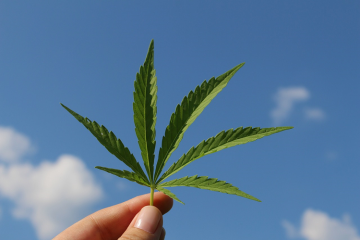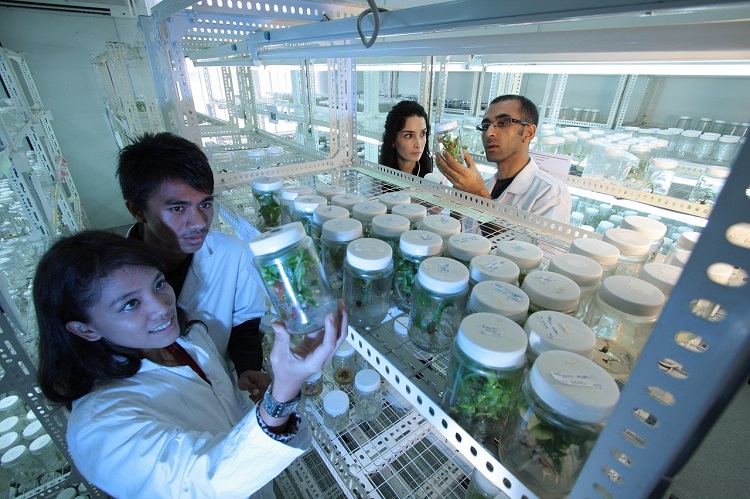What is THCH and how is it formed? Effects, products and legality

- What is THCH and how is it formed?
- Effects of THCH
- Side effects
- THCH products and legality
- Conclusion
What is THCH and how is it produced?
The discovery of THCH (tetrahydrocannabichetol) was made as early as 1942 by the American chemist Roger Adams. In 2019, it was isolated from the cannabis plant by Italian scientists who also discovered the cannabinoid THCP. Both THCH and THCP are considered rare and probably exert a strong psychoactive effect on the body.
According to a 2022 study, around 150 minor cannabinoids have already been identified in the cannabis plant, and THCH is one of them. THCH is present in cannabis, albeit only in trace amounts. This cannabinoid is therefore found freely in nature and is also produced synthetically, for example from CBD.
The cannabinoid THCH (Δ9-THCH, Δ9-Parahexyl, n-Hexyl-Δ9-THC) is the hexyl homologue of delta-9-THC or THC, tetrahydrocannabinol. Homologues are compounds of the same type that have similar chemical structure and properties. That is, THCH has a similar molecular structure to delta-9-THC, but differs in the length of the side bond.
While THCH has a hexyl side chain with 6 carbons, THC has a classical pentyl side chain with 5 carbons.
The Italian group of scientists obtained THCH using a chromatographic process from cannabis strain FM2. Incidentally, this is the same strain in which they found THCP.
Chromatography separates the different substances in the cannabis extract, producing a highly pure cannabinoid. And it's done by filling a chromatography column with silica and pouring the cannabis extract into it.
At the moment, we don't know of any cannabis strains that have a high concentration of THCH, and the FM2 cannabis strain is not enough to cover commercial production, so THCH is also produced synthetically from other cannabinoids, such as CBD.
Based on a study describing the synthesis of THCP by chemical reaction, Dr Mark Scialdone reported that THCH products are not natural and that cannabinoids with different carbon chain lengths, such as THCH, are not extracted from cannabis but are produced synthetically.
What do you mean by that? Simply put, scientists do not add extra carbons to the delta-9-THC molecule, but use a synthetic substance (precursor) that already has the correct number of carbon atoms in a chemical process called 'terpenylation'. To make THCH, they use hexylresorcinol, a resorcinol with a chain length of 6 carbons.

Effects of THCH
Regarding the effects of THCH, there is currently a lack of research that tells us comprehensive information about how THCH works and what therapeutic benefits it harbours.
What is currently available is a study on mice conducted by Italian researchers, which suggested that THCH helps to alleviate pain symptoms.
There is information circulating on the Internet that THCH probably binds 10 times more effectively than THC to CB1 (nervous system, brain) receptors in the endocannabinoid system in our body. If we think of the 2018 research that suggests that side chains in cannabinoid compounds can alter the interaction ability and pharmacology of cannabinoid receptors, this could possibly explain the higher activity of THCH on CB1 receptors.
There are also those who believe that binding to the CB1 receptor is up to 25 times more active than THC. But we already know that no research has been done to date to substantiate this. Perhaps the only thing to add to this is that higher activity on the CB1 receptor does not automatically mean that THC is more potent.
THCH is likely to be psychoactive, may have similar effects to THC, and probably acts with greater intensity. Users have reported that it can produce strong physical and psychological effects, euphoria, relaxation, improved mood and relief from pain symptoms.
Taking into account that THCH as a tetrahydrocannabinol compound could have similar properties to THC, in particular:
- relieving symptoms of pain and inflammation
- appetite stimulation
- improving sleep
- neuroprotective properties
- help with nausea
Current information also suggests that the effects of THCH last longer than those of other cannabinoids with psychoactive properties. Still, there is a lack of research at the moment, so it is not possible to draw conclusions about what effects it has, with what strength and for how long it acts on our body.
Side effects
In the case of side effects, the situation is the same, there are no researches so far. However, we can draw on other psychoactive cannabinoids.
Possible side effects include:
- fatigue and drowsiness
- redness of the eyes
- dry mouth
- increased heart rate
- dizziness
- headache
- anxiety
- paranoia
THCH products and legality
At the moment, THCH products appear mainly on foreign e-shops, for example in Austria, France and Greece, as well as in some US states. THCH vapes and replacement cartridges, gum, tinctures, distillate, hash, flowers and candies are available.
The 2018 US Farm Bill legalized all cannabis derivatives that contain no more than 0.3% THC on a dry weight basis. And in the Czech Republic, the limit has been raised to 1% THC.
So, yes, in some countries THCH is legal under this law, but in the Czech Republic it is included in the list of banned addictive substances.
There is a temporary ban on the cannabinoids HHC, HHCO and THCP in the Czech Republic as of 1 March 2024.
Conclusion
THCH is a minor cannabinoid, found in the cannabis plant, albeit only in trace amounts, and therefore it is more common for it to be produced synthetically from other cannabinoids, for example CBD.
Tetrahydrocannabidihexol is the hexyl homologue of delta-9-THC, i.e. it shares the same functional groups with THC but differs in side chain length.
The efficacy of THCH on CB1 receptors should be taken with a grain of salt as we have no studies available. At the moment, we know little and must wait for research to evaluate its efficacy, therapeutic potential and safety.
THCH products are mainly available abroad, in the Czech Republic this substance is illegal. In some countries, legality may result from the US Farm Bill, which defines THCH as legal.
Original text: Patricie Mikolášová, translation by AI
Foto: Pixabay
"All information provided on this website, as well as the information provided through this website, is for educational purposes only. None of the information contained herein is intended as a substitute for medical diagnosis and such information is not to be considered medical advice or recommended treatment. This website does not promote, endorse or advocate the legal or illegal use of narcotic drugs or psychotropic substances or the commission of any other illegal activity. Please see our Disclaimer for further information.“
